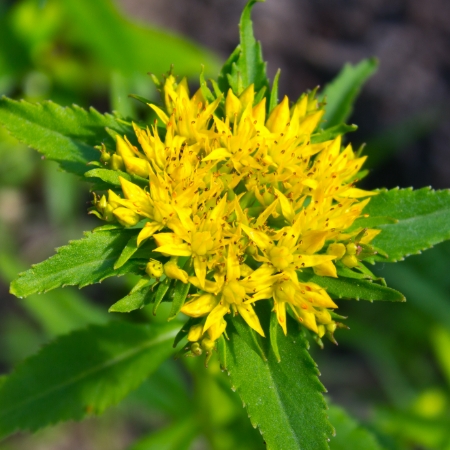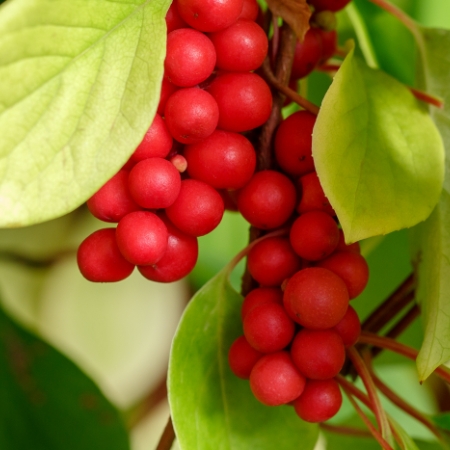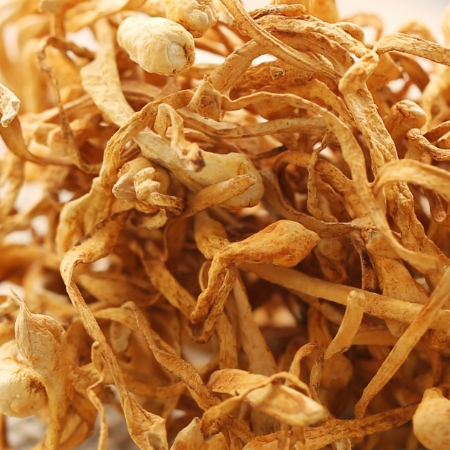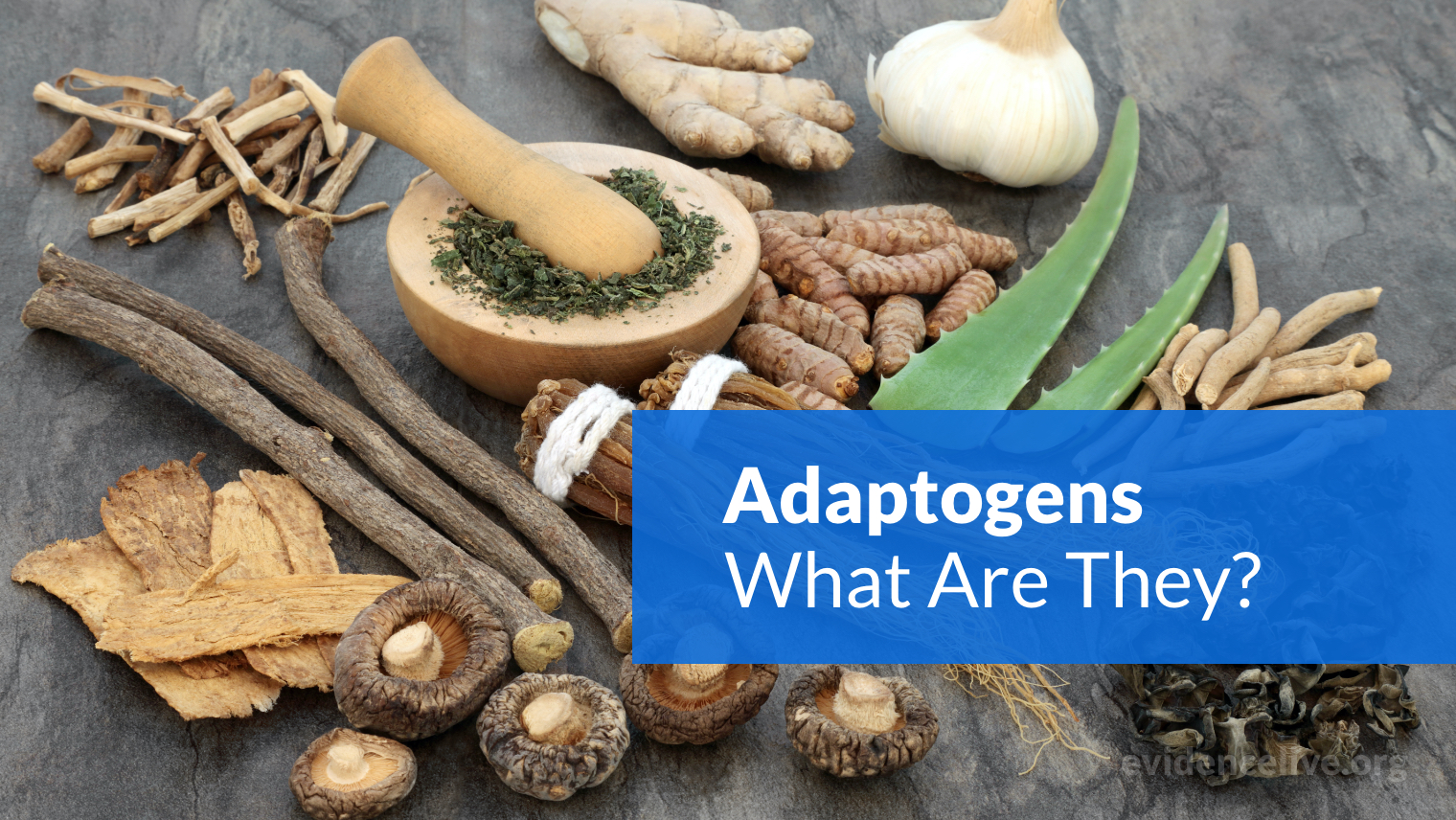Stress and anxiety are buzzwords in today’s busy lifestyle. Many people who feel overwhelmed by demanding situations have turned to adaptogens for help.
These plant-based supplements have stress-relieving properties that can restore homeostasis in the body. And some even claim longevity as a purported benefit.
So, how do you use adaptogens to benefit your daily wellness? Let’s find out what they can and cannot do for your health.
Contents
What Are Adaptogens?
Adaptogens are natural substances like herbs and mushrooms that fight tension on the mind and body and restore balance to normal return systems.
They have gained immense popularity in recent years, with interest in adaptogens and functional herbs reaching a fever pitch.
Adaptogens share the common features of providing nourishment and restoring stability in the body.
Adaptogenic Herbs
Adaptogenic herbs are plants that help the body adapt, adjust and recalibrate itself given its emotional and physical surroundings.
They are used as supplements or as food added to the diet, where some plants use the leaves for the therapeutic value while others make use of the roots.
Adaptogenic Mushrooms
This category of adaptogens excels at supporting the nervous, endocrine, and immune systems. It also supports the adrenal glands in charge of stress management.
Typically, adaptogenic mushrooms are processed into a powder form to be used over or within foods.
Supplements are also available in capsules, extracts, and tinctures. Or, if you wish, you can cook mushrooms and add them to salads, soups, and broths.
How Do Adaptogens Work?
At its most basic, adaptogens are healing herbs or plants that can help balance, restore, and protect the body from daily tension.
Their therapeutic ability enables them to help the body from chronic stress by balancing hormones, building strength and stamina, and boosting the immune system.
To be considered as adaptogens, these foods or food products must work via two master control mechanisms in the body:
- The hypothalamic-pituitary-adrenal axis (HPA axis)
- Sympathoadrenal system (SAS).
Studies have shown that adaptogens optimize organ function, increase inner strength, reduce inflammatory levels, and regulate hormonal equilibrium.
Are Adaptogens Effective?
Evidence from research indicates that adaptogens are more effective than placebo in lowering feelings of occasional anxiety, stress, or exhaustion.
Most research looks at the effects of single herbs like ashwagandha and Rhodiola in isolation.
However, in one study, scientists investigated the cumulative impact of Schisandra, Siberian ginseng, and Rhodiola. The combination improved the participants’ ability to focus and process information quickly (1).
They can modulate the release of stress hormones, restore the body’s innate immune function, and help it adapt to stressful environments.
How Adaptogens Affect The Brain?
In a nootropic capacity, adaptogens work on the hypothalamus, the brain’s control center.
Some, such as Rhodiola, support the level of neurotransmitters in the brain, including dopamine, serotonin, adrenaline, and acetylcholine.
Others, like ashwagandha, possess the ability to inhibit overactive cells in the brain, have antioxidant action, and support immune function.
What Are The Health Benefits of Adaptogens?
By far, many people complain of issues regarding adrenal fatigue and thyroid disorders.
Adaptogens are among the most used herbs when it comes to dealing with such health issues.
They are also easy to incorporate into the diet as supplements, given the various forms they are available in.
Cognitive Function Boost
Adaptogens have a noticeable effect on brain health and the nervous system. They help regulate neurotransmitters and may alleviate neurological problems like depression, impaired attention, and headaches.
Some adaptogen supplements like ashwagandha effectively regenerate the brain health by rejuvenating synapses and reconstructing neurites in damaged neurons (2).
Research on Rhodiola shows it contains bioactive components that improve cognition, learning, and resistance to the brain from aging experience (3).
And Schisandra may improve memory deficits and enhance learning aptitude (4).
Help With Stress Relief
Adaptogens boost resistance to pressure by tweaking hormone production.
Many work by supporting the nervous and immune systems, while others work on daily pressures like fatigue and exhaustion.
Both Ashwagandha and Rhodiola rank high in this category. One study with ashwagandha shows that people who take a 300 mg supplement of its root extract twice daily experienced a drop in their stress hormones (5).
Reduce Physical and Mental Fatigue
Most people seek out adaptogens when they feel stressed or anxious or need to drive up their stamina. Several adaptogens work by balancing the adrenal glands and different hormone levels.
Known for its grounding effect, ashwagandha helps calm anxiousness, while eleuthero has a more uplifting and stimulating nature.
On the other hand, Rhodiola deals well with mental fatigue, brain fog, and trouble concentrating by calming the emotional state and suppressing stress hormones.
Some like Siberian ginseng are highly adept at increasing mental alertness, attention, clarity, and improving slumber, all cofactors that lower mental and physical exhaustion.
Energy and Endurance Improvement
Adaptogens are also famous for keeping endurance and resilience levels up.
Cordyceps is one such example that replenishes energy by raising ATP levels. Studies show it to improve measures of exercise performance in young and older adults (6).
Another is holy basil that increases endurance and helps the body deal with tension.
It works well to address physical and environmental stressors like prolonged exertion, pollutants, and heavy metals.
Boost The Immune System
Medicinal herbs are a great tool to have in your toolkit, especially for people dealing with any kind of chronic illness.
Holy basil, which has anti-inflammatory and antimicrobial features, fits the bill just right.
A review of clinical studies found the supplement to be effective in promoting immune-boosting activity and fighting infection (7).
Reduce Cortisol Levels
Ashwagandha, bacopa, and Rhodiola are all very effective at regulating cortisol.
Some will also increase other neurotransmitters that have a positive impact on the stress response.
You can use these in powder or extract form to get maximum benefits.
Mood, Sleep, and Relaxation Improvement
While some adaptogens stimulate the body, others relax it to stay calm.
Schisandra berry, for instance, makes users feel relaxed, alert and focused. And if taken before meditation, it may enhance these results.
Reishi is also recognized for its calming activity and supporting sleep.
Best Natural Adaptogens That Are Effective
There is plenty of anecdotal evidence to support the effectiveness of adaptogens, but now science is also looking deeper into their health benefits.
Ashwagandha
An ancient medicinal herb, ashwagandha is considered one of the most well-known adaptogens for improving overall health and wellness.

Animal studies indicate that this herb blocks stress pathways in the brain by modulating chemical signals in the nervous system (8).
Human research also shows that it can lower symptoms in individuals with stress and anxiety disorders.
It can also support adrenal function by regulating stress hormone levels, provide immune support via its antioxidant content, and boost energy levels by fighting fatigue and increasing resilience.
Panax Ginseng
Panax ginseng has long been used for fighting fatigue in Traditional Chinese Medicine. It also resists physical stressors and promotes emotional well-being.

There has been a lot of research regarding its effect on the HPA axis. This is the control center of the body for mounting stress responses and regulating several neuroendocrine pathways.
Research shows that the adaptogenic properties of Panax ginseng help maintain healthy inflammatory pathways and modulate stress hormone activity on the HPA axis.
Siberian Ginseng
Siberian ginseng is another plant with adaptogenic properties. Also known as Eleutherococcus senticosus, it has active components called eleutherosides that help stimulate immune responses.

Supplements made from the plant use their root parts to lower exhaustion and enhance exercise performance.
Research suggests that people with chronic fatigue syndrome may benefit from using this adaptogen to reduce the severity and duration of their symptoms.
Rhodiola Rosea
A well-known adaptogen, Rhodiola Rosea, has a long history in Chinese medicine where it has been used to calm anxious minds and lower stress.

Its potential as an adaptogen seems to affect different aspects of the central nervous system by helping fight both mental and physical fatigue. In doing so, it lowers cortisol and boosts energy levels.
Cortisol has a direct relationship with several stress-induced symptoms. By managing its levels, Rhodiola can better regulate the body’s stress response system.
Schisandra
Schisandra Chinensis has an impressive reputation for its stress-protective properties, increasing energy, and improving physical performance and endurance.

The berry of this fruit-bearing vine contains schisandrin and gomesin, two of its most active compounds.
Studies show the former to protect the nervous system against stress and the latter to possess anti-inflammatory power.
When consumed regularly, Schisandra berries can potentially relieve mental stress and physical fatigue.
Bacopa Monnieri
Bacopa Monnieri holds a revered spot in Ayurvedic medicine as an adaptogen and anxiolytic.

It seems to get most of its potential from active compounds called bacosides that can cross the blood-brain barrier.
This makes it very suitable for addressing issues regarding mental performance and concerns like anxiety, stress, and sadness.
Like other adaptogens, bacopa monnieri can also boost neurotransmitter production and help regulate stress hormones to have calming effects.
Holy Basil
Another Ayurvedic staple, holy basil, is an antioxidant-rich herb that can counter insomnia, improve digestion, and relieve headaches.

It is commonly prescribed for coughs and colds, primarily when associated with asthma and bronchitis. The herb also promotes circulation, normalizes high blood pressure, and supports immunity.
Its adaptogenic activity includes reducing the damaging effects of stress, improving antioxidant work capacity, and supporting healthy cholesterol, blood pressure, and lipid levels.
Reishi Mushroom
Reishi mushrooms are used to combat fatigue and depression, lower blood glucose and blood pressure, and provide antioxidant benefits.

Studies show that reishi mushroom extract lowers fatigue and improves the quality of life in people (9).
Considered soothing among mushrooms, reishi can help balance bodily functions and systems. It is also helpful for unwinding the mind and supporting a cohesive sleep pattern.
Lion’s Mane Mushroom
Lion’s mane is a medicinal mushroom well-known for repairing and regenerating neurons in the brain.

This mechanism supports both brain health and cognitive function. It has also been studied for its anti-stress and antidepressant effects.
Research shows one active compound in lion’s mane known as amycenon to possess antidepressant features.
Also, since depression is often linked to neurological inflammation, the anti-inflammatory effects of lion’s mane may help ward off these stress responses.
Cordyceps
Cordyceps can lower inflammation, improve the state of mind and memory, and provide anti-aging benefits.

It contains the active compound cordycepin, which gives it its immune-boosting and antioxidant efficacy.
Like other adaptogens, cordyceps helps the body create and maintain balance during stress by impacting how cells make ATP and enhance oxygen utilization.
How To Use Adaptogens?
Adaptogens are available in several forms. You can get these in powder, pill, or capsule form to extracts and tinctures.
Some may be better suited to certain delivery forms based on their bioavailability, tolerance, flavor, or ease of swallowing.
- Capsules are more convenient to swallow than tablets and easily mask the bitter or unpleasant ingredients inside.
- Powders are suitable for people who find it hard to swallow a pill and are easy to dissolve in a drink.
- Extracts and tinctures are both liquids, with extracts being more potent than tinctures.
Depending on which form of the adaptogen you opt for, you can add it to your diet in several ways.
You can blend adaptogens in smoothies or other beverages, sprinkle them on top of food, or prepare a steeped tea with adaptogenic herbs.
Adaptogenic plants and herbs are typically taken for more extended periods as they take a while to build up before working on the body.
To gauge the effectiveness of any adaptogen you take, it may be worth tracking your response to stress, such as changes in mood, emotions, or fatigue.
Typically, the dose should start from low and move up after establishing tolerance.
Do Adaptogens Have Side Effects?
Even though all-natural, adaptogens can still present some side effects, especially for people with allergies or certain health conditions.
Some like ashwagandha, for instance, can have an immunosuppressant effect and should be avoided by individuals with auto-immune diseases. Others like Schisandra may cause heartburn, an upset stomach, or a decreased appetite.
It is essential to work with your doctor before adding any supplement to your health and wellness routine.
Some herbs and adaptogens can interact with your current prescription medications or might be contraindicative to your current diagnosis.
Side effects of adaptogens are typically minor, including some digestive discomfort, diarrhea, and occasional drowsiness. Some people may also experience an occasional headache when using adaptogens.
Anyone taking medicines should first consult with their doctor before starting supplementation.
Conclusion
The efficacy of adaptogens is fairly well established in helping the body deal with stress, improving quality of life, and protecting neurological health.
Research shows the most obvious benefits in relieving fatigue and exhaustion along with improving cognitive function and mental performance.
So, while there is an adaptogen for everyone, you just need to know which one best suits your health needs and concerns.

